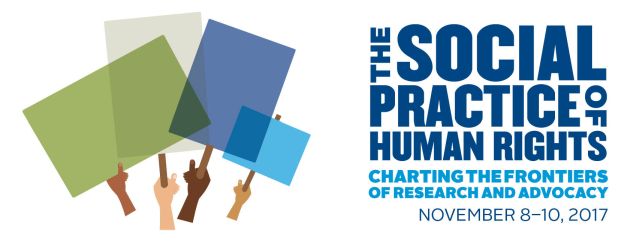
Start Date
11-9-2017 10:30 AM
Keywords
Sustainable Development Goals, Rights-based approaches, Millennium Development Goal, Land, Labor
Abstract
The Millennium Development Goals created incentives for donors and governments to favor quick impact over addressing complex social systems. As a result, the MDG period saw little sustained effort to open up access to those productive assets, and that presents a challenge for the SDGs.
This paper argues (1) that this failing of the MDGs weakened their impact; (2) that the SDGs significantly improve on this record by including goals and targets that focus on these productive assets, in both land and labor; (3) that human rights approaches have driven important efforts in some societies to improve land and labor rights; and (4) that human rights organizations and human rights methods are shaping the SDGs and their monitoring and implementation.
Examining national experiences with land reform, women’s property and inheritance rights, and improved labor rights and opportunities, the paper shows that these measures have important, long-term impacts on poverty and that they are driven by effective advocacy and long-term government commitments to human rights principles. Sustainable success will also require that poor people have access to the productive assets — land, credit, work at living wages and training, and energy — that give them opportunities to prosper.
Human rights approaches tend to call for attention to the causes and multiple dimensions of poverty and to the linkages between poverty and civil and political freedoms, both in principle and in practice. The paper’s final section examines human rights advocates’ expanded involvement in shaping and monitoring the SDGs.
Included in
Making the Sustainable Development Goals Really Sustainable: Human Rights Strategies to Improve Land Tenure Rights and Wages for the Poor
The Millennium Development Goals created incentives for donors and governments to favor quick impact over addressing complex social systems. As a result, the MDG period saw little sustained effort to open up access to those productive assets, and that presents a challenge for the SDGs.
This paper argues (1) that this failing of the MDGs weakened their impact; (2) that the SDGs significantly improve on this record by including goals and targets that focus on these productive assets, in both land and labor; (3) that human rights approaches have driven important efforts in some societies to improve land and labor rights; and (4) that human rights organizations and human rights methods are shaping the SDGs and their monitoring and implementation.
Examining national experiences with land reform, women’s property and inheritance rights, and improved labor rights and opportunities, the paper shows that these measures have important, long-term impacts on poverty and that they are driven by effective advocacy and long-term government commitments to human rights principles. Sustainable success will also require that poor people have access to the productive assets — land, credit, work at living wages and training, and energy — that give them opportunities to prosper.
Human rights approaches tend to call for attention to the causes and multiple dimensions of poverty and to the linkages between poverty and civil and political freedoms, both in principle and in practice. The paper’s final section examines human rights advocates’ expanded involvement in shaping and monitoring the SDGs.


